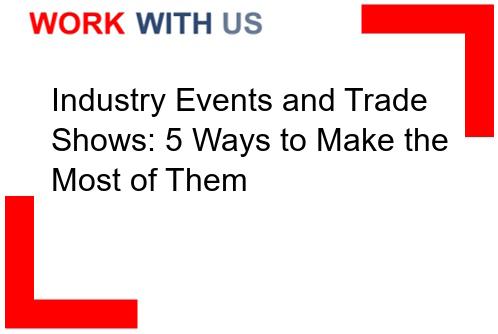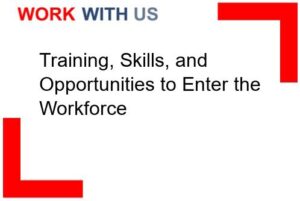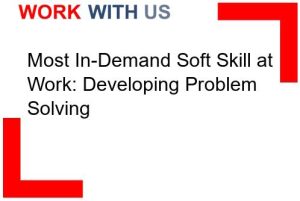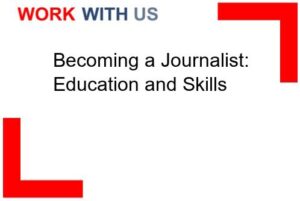Industry events and trade shows are crucial opportunities for professionals to network, learn about the latest trends in their field, and showcase their products or services. These events bring together industry leaders, experts, and potential clients in one place, making them a valuable resource for anyone looking to grow their business or career. To make the most of these events, individuals need to have a strategic approach and be prepared to maximize their time and resources.
One way to make the most of industry events and trade shows is to set clear goals and objectives before attending. Whether it’s to generate leads, build brand awareness, or learn about new technologies, having a clear understanding of what you want to achieve will help you focus your efforts and make the most of your time at the event. By setting specific, measurable goals, you can track your progress and ensure that you are getting the most out of the event.
Another way to maximize your experience at industry events and trade shows is to do your research beforehand. Take the time to familiarize yourself with the event schedule, exhibitors, and speakers so that you can plan your time effectively. Identify key sessions, workshops, or networking opportunities that align with your goals and make a plan to attend them. By being prepared and informed, you can make the most of your time at the event and ensure that you are getting the information and connections you need.
Networking is a crucial aspect of industry events and trade shows, and one of the most effective ways to make the most of them. Take advantage of the opportunity to meet and connect with industry professionals, potential clients, and partners. Be proactive in initiating conversations, exchanging contact information, and following up after the event. Building relationships and expanding your network can lead to new opportunities, collaborations, and business growth.
In addition to networking, attending industry events and trade shows can also provide valuable learning opportunities. Take advantage of the workshops, seminars, and keynote presentations to expand your knowledge and stay up-to-date on the latest trends and developments in your field. Engage with speakers, ask questions, and participate in discussions to deepen your understanding and gain new insights. By actively participating in the educational aspects of the event, you can enhance your skills and expertise, making the most of your time at the event.
Lastly, don’t forget to follow up after the event. After the industry event or trade show is over, take the time to reconnect with the people you met, send follow-up emails, and continue the conversations you started. Nurture the relationships you built and explore potential collaborations or partnerships. By staying in touch and maintaining connections, you can leverage the opportunities and insights gained at the event to further your business or career goals.
In conclusion, industry events and trade shows are valuable opportunities for professionals to network, learn, and grow. By setting clear goals, doing your research, networking, learning, and following up, you can make the most of these events and maximize your time and resources. With a strategic approach and proactive mindset, you can ensure that you are getting the most out of industry events and trade shows, leading to new opportunities, connections, and growth in your business or career.
Strategies for networking effectively at industry events and trade shows
Industry events and trade shows provide valuable opportunities for professionals to network, build relationships, and expand their business connections. To make the most of these events, individuals must employ effective strategies to maximize their networking potential.
One key strategy for networking effectively at industry events is to set clear goals and objectives. Before attending an event, professionals should identify specific individuals or companies they want to connect with and outline what they hope to achieve from these interactions. By having a clear focus, individuals can prioritize their time and energy on building meaningful relationships that align with their professional objectives.
Another important strategy for successful networking at industry events is to be proactive and approachable. Instead of waiting for others to initiate conversations, professionals should take the initiative to introduce themselves and engage with fellow attendees. By being approachable and open to new connections, individuals can create opportunities for meaningful conversations and potential collaborations.
In addition to being proactive, professionals should also be prepared to effectively communicate their value proposition. When networking at industry events, individuals should be able to clearly articulate their skills, expertise, and unique selling points. By effectively communicating their value, professionals can make a strong impression on potential contacts and showcase how they can add value to their network.
Furthermore, it is essential for individuals to actively listen and show genuine interest in others during networking interactions. By listening attentively to what others have to say, professionals can demonstrate their respect and appreciation for their perspectives. Additionally, showing genuine interest in others can help build rapport and establish a foundation for future collaborations.
Another effective strategy for networking at industry events is to leverage social media and online platforms to connect with attendees before, during, and after the event. By utilizing platforms such as LinkedIn, professionals can research potential contacts, send personalized messages, and schedule meetings in advance. Additionally, social media can be used to share insights, updates, and highlights from the event, further extending networking opportunities beyond the physical event.
Moreover, professionals should make an effort to follow up with new contacts after the event to maintain and nurture relationships. Sending personalized follow-up emails or messages expressing gratitude for the interaction and reiterating interest in future collaborations can help solidify connections made at industry events. By staying in touch and continuing to engage with contacts, professionals can build long-lasting relationships that can lead to valuable opportunities in the future.
It is also important for individuals to be mindful of their body language and non-verbal cues during networking interactions. Maintaining open and welcoming body language, making eye contact, and smiling can help create a positive and approachable impression on others. Additionally, being mindful of personal space and respecting boundaries can contribute to building trust and rapport with fellow attendees.
Furthermore, professionals should consider attending networking events and workshops within the industry to further expand their network and knowledge. By participating in specialized events and workshops, individuals can connect with like-minded professionals, gain insights into industry trends, and build relationships with key influencers. These niche events can provide valuable opportunities for targeted networking and professional development.
In conclusion, networking effectively at industry events and trade shows requires a combination of strategic planning, proactive engagement, effective communication, and genuine interest in building relationships. By setting clear goals, being proactive, communicating value, listening attentively, leveraging social media, following up, being mindful of body language, and attending niche events, professionals can maximize their networking potential and create valuable connections within their industry. Ultimately, effective networking at industry events can lead to new opportunities, collaborations, and professional growth.
Leveraging technology to maximize your presence at industry events and trade shows
In today’s fast-paced business world,
leveraging technology is essential for companies looking to maximize their presence at industry events and trade shows. With the rise of digital marketing and
online networking
, businesses have more opportunities than ever to connect with potential customers and partners at these events. By utilizing
technology
effectively, companies can increase their visibility, generate leads, and ultimately drive sales.
One of the most effective ways to
leverage technology
at industry events is through
social media
. Platforms like LinkedIn, Twitter, and Instagram provide a powerful way to engage with attendees before, during, and after the event. Companies can create
social media
campaigns to promote their presence at the event, share updates and announcements in real-time, and connect with other participants. By using social media
strategically, businesses can extend their reach beyond the confines of the event venue and attract a larger audience. . Many events now offer dedicated apps that provide attendees with schedules, maps, and networking opportunities. Companies can take advantage of these apps to schedule meetings, track leads, and stay organized throughout the event. By using mobile apps, businesses can streamline their and make the most of their time at the event. . Companies can use VR and AR technology to create immersive experiences for attendees, such as virtual product demonstrations or interactive presentations. By incorporating these technologies into their booth or presentation, businesses can capture the attention of attendees and leave a lasting impression. VR and AR can also be used to collect data on attendee engagement and preferences, allowing companies to tailor their marketing efforts more effectively. is another powerful tool for maximizing your presence at industry events. By collecting and analyzing data on attendee behavior, companies can gain valuable insights into their target audience and adjust their accordingly. For example, companies can track which sessions or activities are most popular among attendees, which booths attract the most traffic, and which marketing materials are most effective. By using data analytics, businesses can make data-driven decisions that lead to better outcomes at industry events. . By using , businesses can track and manage their interactions with leads, send personalized follow-up emails, and nurture relationships over time. Companies can also use tools to send targeted messages to leads based on their interests and behavior at the event. By staying in touch with leads and providing valuable content, businesses can convert leads into customers and maximize the return on their investment in industry events. Industry events and trade shows are excellent opportunities for businesses to showcase their products and services, network with potential clients, and stay ahead of industry trends. However, with so many competitors vying for attention, it can be challenging to stand out from the crowd. To help businesses make the most of these events, here are some tips for making a lasting impression and attracting the right audience. One of the most important things to do when attending industry events and trade shows is to have a clear and compelling message. Businesses should be able to succinctly communicate what sets them apart from their competitors and why attendees should be interested in their offerings. This message should be prominently displayed on all marketing materials, including banners, brochures, and business cards. In addition to having a strong message, businesses should also focus on creating visually appealing displays. Eye-catching graphics, vibrant colors, and interactive elements can help draw attendees to their booth and keep them engaged. Businesses should also ensure that their booth is well-designed and organized, with plenty of space for attendees to move around and interact with their products. Another way to stand out at industry events and trade shows is to offer something unique or exclusive to attendees. This could be a special promotion, a product demonstration, or a giveaway that is only available at the event. By providing something of value to attendees, businesses can increase their chances of making a lasting impression and generating leads. Networking is another crucial aspect of standing out at industry events and trade shows. Businesses should take the time to connect with other exhibitors, industry influencers, and potential clients. By building relationships and making connections, businesses can increase their visibility and credibility within the industry. It’s also important for businesses to be proactive in promoting their presence at industry events and trade shows. This could include sending out invitations to clients and prospects, promoting the event on social media, and reaching out to industry publications for coverage. By generating buzz before the event, businesses can increase their chances of attracting a larger audience. During the event, businesses should be prepared to engage with attendees and answer any questions they may have. This could involve having knowledgeable staff on hand to provide information about products and services, as well as conducting live demonstrations or presentations. By being approachable and informative, businesses can build trust with attendees and increase their chances of making a sale. Following up with leads after the event is also crucial for standing out among competitors. Businesses should have a system in place for collecting contact information from attendees and following up with them in a timely manner. This could involve sending personalized emails, making phone calls, or scheduling follow-up meetings. By staying in touch with leads, businesses can nurture relationships and convert them into customers. In conclusion, standing out at industry events and trade shows requires a combination of a strong message, visually appealing displays, unique offerings, networking, proactive promotion, engaging with attendees, and following up with leads. By implementing these tips, businesses can increase their visibility, attract the right audience, and ultimately achieve success at industry events and trade shows. After attending industry events and trade shows, it is crucial for businesses to follow up with leads, contacts, and potential clients. Following up shows professionalism, dedication, and a genuine interest in building relationships with those met at the event. It also helps to keep the conversation going and ensures that the business remains top of mind for potential clients. Many connections are made during these events, but without proper follow-up, these connections can quickly fizzle out. Following up promptly after the event keeps the conversation going and allows businesses to capitalize on the interest and excitement generated during the event. It also gives businesses the opportunity to provide more information, answer any questions, and solidify the relationship. Many leads generated at these events may not be ready to make a purchase immediately, but with proper follow-up, businesses can nurture these leads over time and eventually convert them into customers. By staying in touch with leads, providing valuable information, and building trust, businesses can increase their chances of closing deals with these leads in the future. By following up with contacts and clients after the event, businesses can gather feedback on their products or services, the event itself, and any other relevant information. This feedback can be invaluable in improving products or services, refining marketing strategies, and making future events even more successful. It also shows clients that their opinions are valued and that the business is committed to continuous improvement. By staying in touch with contacts made at these events, businesses can build trust, loyalty, and rapport over time. This can lead to repeat business, referrals, and even partnerships with other businesses. By consistently following up and staying engaged with clients and partners, businesses can strengthen their relationships and position themselves as trusted partners in their industry. By following up promptly, providing valuable information, and staying engaged with contacts, businesses can turn leads into customers, improve their products or services, and position themselves as industry leaders. Follow-up is not just a courtesy, but a strategic business practice that can lead to tangible results and long-term success. Businesses that prioritize follow-up after industry events and trade shows are more likely to see a return on their investment and achieve their business goals.Another way to maximize your presence at industry events is through the use of mobile apps
event experience
Virtual reality (VR) and augmented reality (AR) are also becoming increasingly popular tools for enhancing the event experience
Data analytics
event strategy
Finally, companies can leverage technology to follow up with leads and maintain relationships after the event
customer relationship management (CRM) software
marketing automation
Tips for standing out among competitors at industry events and trade shows
The importance of follow-up after industry events and trade shows
The importance of follow-up cannot be overstated, as it is a key component in turning connections made at these events into tangible business opportunities.
One of the main reasons why follow-up is so important after industry events and trade shows is to capitalize on the momentum generated during the event.
Another reason why follow-up is crucial after industry events and trade shows is to nurture leads and move them through the sales funnel.
Follow-up after industry events and trade shows also helps businesses gather valuable feedback and insights.
In addition to nurturing leads and gathering feedback, follow-up after industry events and trade shows also helps businesses build long-lasting relationships with clients and partners.
Overall, follow-up after industry events and trade shows is essential for businesses to capitalize on the connections made, nurture leads, gather feedback, and build long-lasting relationships.



